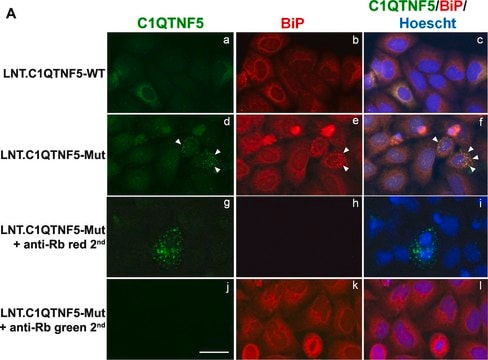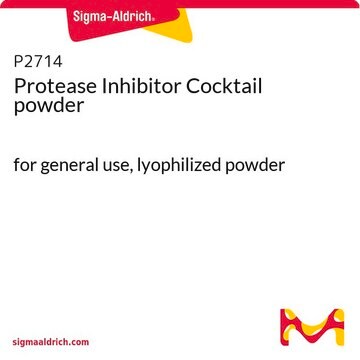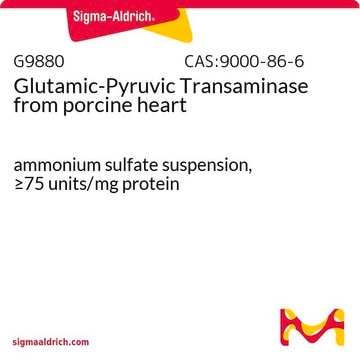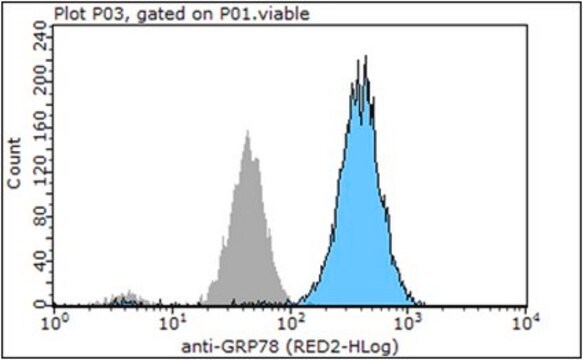G9043
Anti-GRP78/BiP (ET-21) antibody produced in rabbit

IgG fraction of antiserum, buffered aqueous solution
Synonyme(s) :
Anti-78-kDa Glucose-Regulating Protein, Anti-Immunoglobulin Heavy Chain Binding Protein
About This Item
Produits recommandés
Source biologique
rabbit
Niveau de qualité
Conjugué
unconjugated
Forme d'anticorps
IgG fraction of antiserum
Type de produit anticorps
primary antibodies
Clone
polyclonal
Forme
buffered aqueous solution
Poids mol.
antigen 78 kDa
Espèces réactives
mouse, chicken, Xenopus, hamster, human, rat
Validation améliorée
independent
Learn more about Antibody Enhanced Validation
Technique(s)
immunocytochemistry: 1:1,000 using methanol/acetone fixed cultured mouse fibroblast NIH3T3 cell line
immunohistochemistry: 1:1,000 using human cerebral cortex and human thyroid gland tissue sections
western blot: 1:3,000 using whole cell extract of human epitheloid carcinoma HeLa cell line
Numéro d'accès UniProt
Conditions d'expédition
dry ice
Température de stockage
−20°C
Modification post-traductionnelle de la cible
unmodified
Informations sur le gène
human ... HSPA5(3309)
mouse ... Hspa5(14828)
rat ... Hspa5(25617)
Application
- for immunofluorescence staining of frozen heart tissue to examine whether ER stress signaling activation occurs in cardiomyocytes
- for immunohistochemistry on Paraffin embedded sections of human cerebral cortex and human thyroid gland tissue sections.
- to detect Bip by immunoblotting of protein extract from WT AB strain of zebrafish (Danio rerio)
- at a working dilution of 1:1000 to detect GRP78 in extract of prostate cancer cells after androgen deprivation therapy
Actions biochimiques/physiologiques
Forme physique
Clause de non-responsabilité
Vous ne trouvez pas le bon produit ?
Essayez notre Outil de sélection de produits.
Code de la classe de stockage
12 - Non Combustible Liquids
Classe de danger pour l'eau (WGK)
nwg
Point d'éclair (°F)
Not applicable
Point d'éclair (°C)
Not applicable
Certificats d'analyse (COA)
Recherchez un Certificats d'analyse (COA) en saisissant le numéro de lot du produit. Les numéros de lot figurent sur l'étiquette du produit après les mots "Lot" ou "Batch".
Déjà en possession de ce produit ?
Retrouvez la documentation relative aux produits que vous avez récemment achetés dans la Bibliothèque de documents.
Les clients ont également consulté
Notre équipe de scientifiques dispose d'une expérience dans tous les secteurs de la recherche, notamment en sciences de la vie, science des matériaux, synthèse chimique, chromatographie, analyse et dans de nombreux autres domaines..
Contacter notre Service technique








